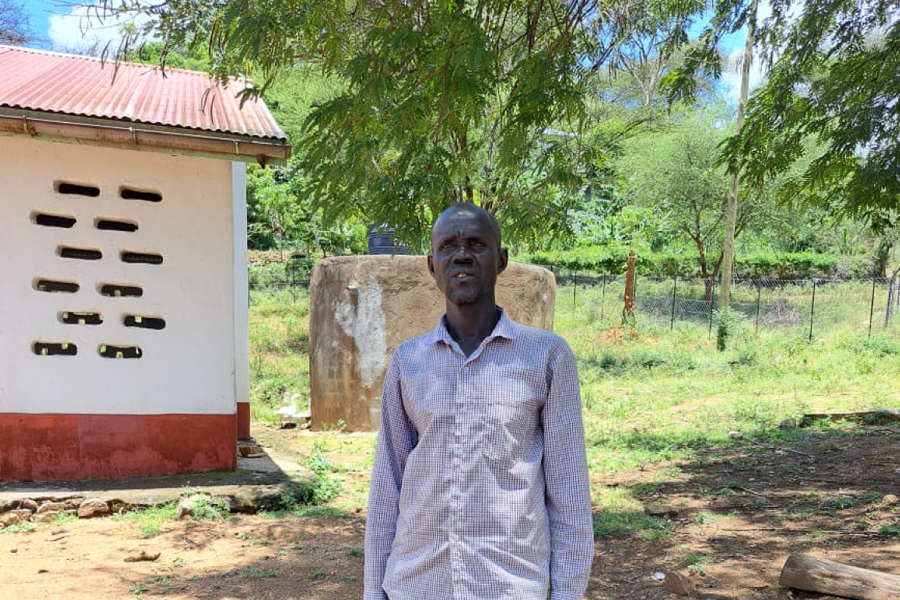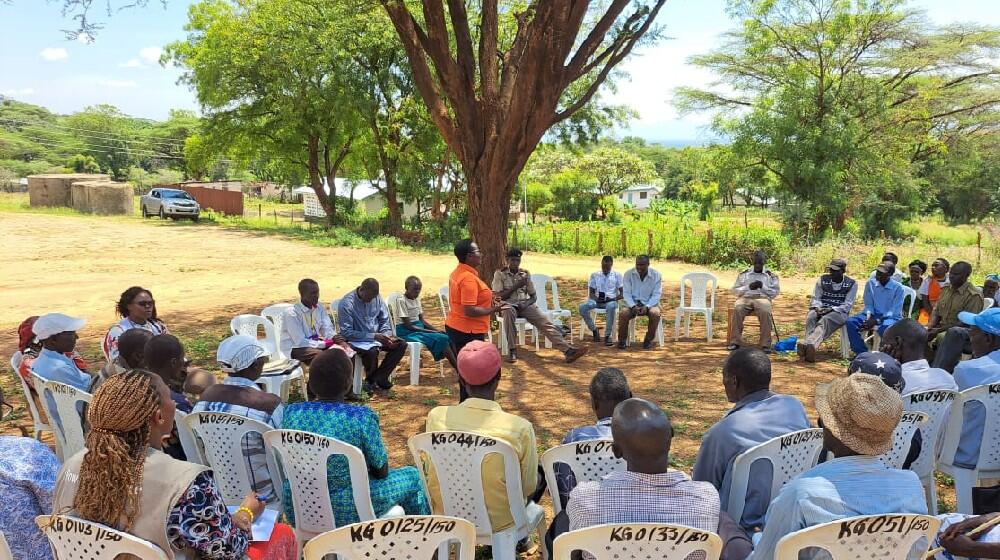In Chesongoch village, Elgeyo Marakwet County, it is culturally frowned upon when a woman or girl chooses not to undergo female genital mutilation.The prevalence of FGM stands at 19.7% in this county, underscoring the ongoing struggle to address this harmful practice deeply ingrained in cultural beliefs.
Many community members struggle to disassociate FGM from the meaningful aspects of culture. 51-year-old Joseph Keino sheds light on these cultural expectations: “For a man to hold a leadership position and retain the respect of the village, it is expected that he will marry a woman who has undergone FGM,” he says. Mr. Keino bravely chose to break with tradition when he married a wife who had not experienced FGM. “Because my wife was not circumcised, I have been ostracized and insulted by my peers throughout my entire marriage,” says Joseph. “People have labeled her as an outcast, and some say I am not fit to sit in the company of village elders.”

Elgeyo Marakwet County.
Having personally witnessed the detrimental effects of FGM on the health and socioeconomic prospects of women and girls, Joseph has assumed the role of a male champion. He is actively working to challenge the negative gender and cultural norms perpetuating this practice within his community. Supported by UNFPA and World Vision Kenya, Joseph engages his male peers in impactful discussions advocating for the protection of girls from FGM. “Once a young girl undergoes FGM, she is coerced into forsaking her education and pushed into early marriage. I tell other fathers that this is detrimental to the community,” he says.
Findings from the Kenya Demographic and Health Survey 2022 underscore a strong desire within FGM-practicing communities to discontinue this harmful tradition. An overwhelming 74% of circumcised women in Kenya believe that FGM should cease, complemented by 87% of men expressing that their culture does not mandate FGM. Joseph proudly stated, “My wife and I made the decision that our daughters will not undergo FGM, and gradually, other families in the community are embracing the same stance, ” notes Joseph.
UNFPA is working with partners at the grassroot level to accelerate the elimination of FGM through community sensitization forums in counties identified as FGM hotspots. Such forums bring together community elders, religious leaders, and the youth with the goal of raising awareness on the negative effects of FGM and the need to protect girls from the harmful practice.
“As a result of these community dialogues, we can gradually see a shift in mindsets, as more women and girls are empowered to speak up against FGM, and men, both young and old are becoming allies in the race to eliminate the practice,” says UNFPA Gender Advisor Caroline Murgor.
Joseph remains hopeful that families such as his will become the norm and not the exception in Chesongoch village, as more community members abandon FGM. “Decades ago when I decided to marry my wife, I faced isolation. Today, I am a beacon for other men who wish to shun FGM, and I encourage them to embrace and protect women and girls who choose not to undergo the cut,” he says.




